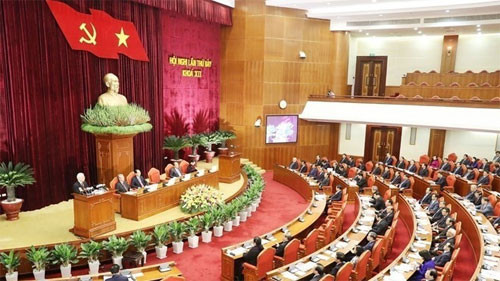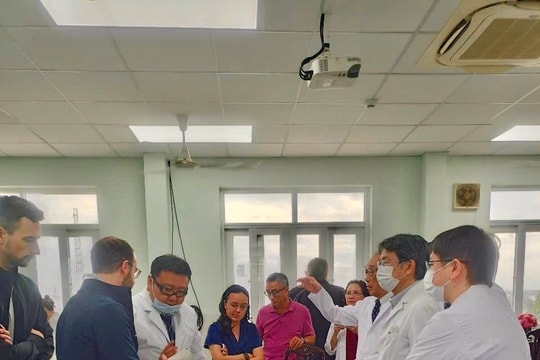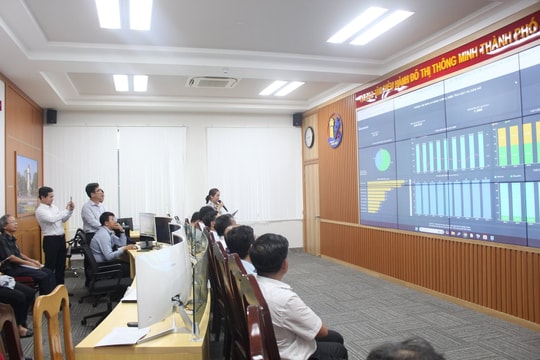 |
| The 7th meeting of the 12th Party Central Committee (Photo: VNA) |
The resolution sets an overall goal of building a system of national salary policies which are scientific and transparent, and reflect the country’s situation, thus meeting the development requirements of the socialism-oriented market economy and the nation’s proactive international integration; helping to build a harmonious, stable and progressive labour relations; creating a driving force for liberalizing the production force and improving labour productivity and the quality of human resources; contributing to building a pure, streamlined, effective political system; preventing corruption and wastefulness; and ensuring the living conditions for wage earners and their families, realising social progress and justice.
The specific targets set by the resolution include the adoption of a new salary regime for cadres, civil servants, public employees, and the armed forces from 2021.
Also from 2021, the regional minimum wage will be regularly adjusted based on the recommendations of the National Salary Council. Enterprises will be allow to decide salary policy basing on negotiations and agreements between employers and employees and representatives of labourers’ collectives. The State will not directly intervene in enterprises’ salary policies.
The management of labour and salary in State-owned enterprises (SOEs) will be carried out by allocating total salary costs for enterprises based on their production and business tasks to 2025, toward allocating production and business tasks to enterprises by 2030.
Enterprises, including SOEs, will be allowed to decide their own wage policies (including pay scale, payroll, and work quotas), with the wage being no less than the minimum salary announced by the State, and based on collective labour agreements in line with each enterprise’s production model and capability. The wage policies should be made public at the workplace.
The state will determine both monthly and hourly minimum wages, the average wage in the market for each occupation, and support the supply of labour market information.
Businesses and their employees will hold negotiations to reach agreement on how to calculate salaries, sign labour contracts, and pay salaries based on labour productivity and output.
Enterprises and organizations representing employees shall negotiate and agree on wages, bonuses, and other remunerations in collective labour agreements or in enterprises' regulations.
For SOEs, the State will provide general principles for determining salaries and bonuses in accordance with labour productivity, and production and business efficiency, aiming to ensure a balanced wage level in the market.
The resolution also requires the publishing of annual salaries and incomes of those who represent the State capital in enterprises and the general directors of State-owned enterprises.
To realise the aforementioned targets, the resolution sets out many solutions, stressing the need to urgently build and perfect the system of job positions, considering this as a prerequisite and essential solution to implement salary reform.
Source: NDO




















.jpg)





.jpeg)

.jpeg)


.jpeg)


